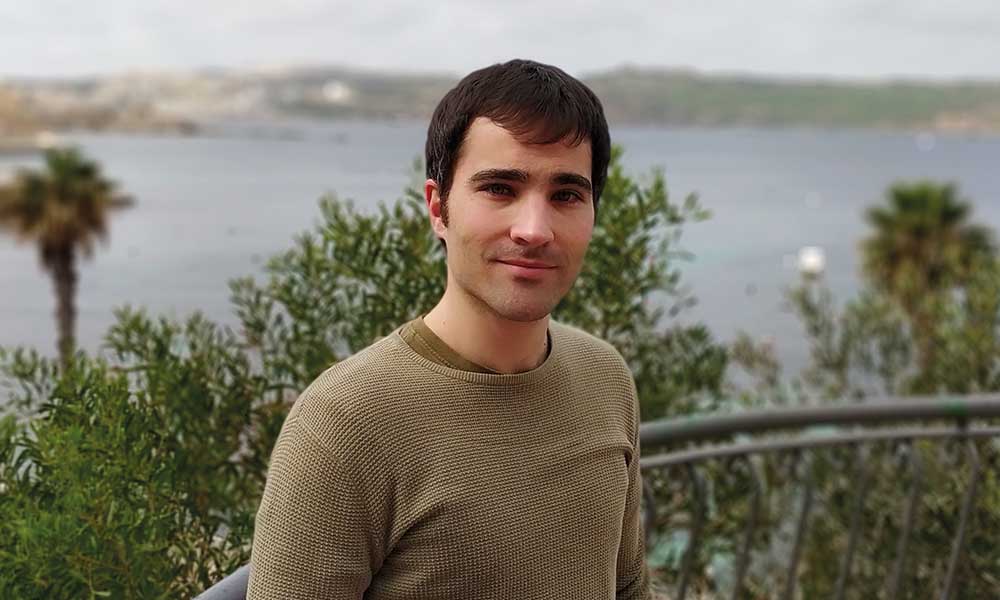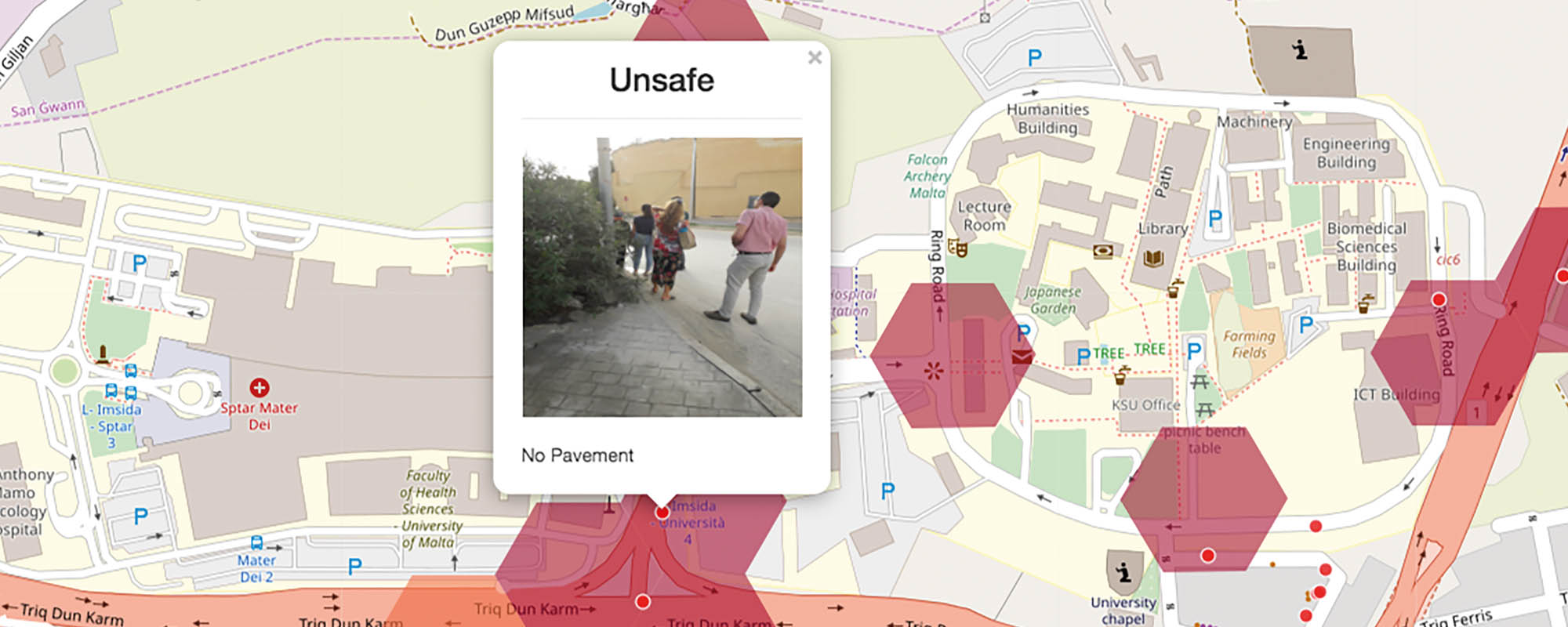Author: Carlos Cañas Sanz
Have you ever found yourself on a busy road framed between cacti and fast cars, because Google Maps thought it would be a good walking path for you? To avoid such situations, we need local research and solutions on Malta’s walkability issues.
In 2013 I moved to Malta from Spain. Taking in the island’s small size, I wanted to try a car-free lifestyle. My experience walking in this heavily car-oriented country soon grew into a curiosity-driven research career on walkability. Nowadays, I am part of an initiative to place walking totems around the University of Malta — large poles with signs indicating how long it takes to walk to nearby localities. I hope this information will encourage others to walk.
I firmly believe that pedestrian needs, perceptions, and feelings should play a key role in studying, planning, and designing public space. This is why I developed a participatory research project in which pedestrians can assess a place’s walkability on the go. Our team encourages pedestrians to share pictures of daily walks using social media (Facebook, Twitter, Instagram, and WhatsApp) and a participatory map on our website. To tell us how they feel when walking, research participants can use hashtags like #safe, #uncomfortable or #dull. And they can also comment on what makes them feel that way.

Some pedestrians are already sharing their positive and negative experiences with us. We hear about #PedestrianCrossings, #FastTraffic, #NoStreetlights, #Trees, #BrokenPavements, #Promenades, and many more. This information helps our team to better understand the relationships between public space and pedestrian behaviour. When all individual inputs come together, we can calculate and compare perceived walkability. It means that we will identify which areas are more pedestrian-friendly, and which require attention and improvement. Apart from hashtags, we also look at pedestrians’ pictures to determine the elements that influence their experience. This combination of people’s perceptions and data will provide valuable insights if future city planners decide to design Maltese public space for pedestrians.
Many research challenges need to be overcome to assess the walkability of Malta’s environment through the eyes of inhabitants. In traditional walkability audits and surveys, researchers’ skills and measuring devices are known and tested. Meanwhile, this innovative approach relies on participants’ skills, abilities, and equipment, which are often more complicated to control. We are collecting data and testing if our approach (a Citizen Science methodology) works.
From my last walk, I would praise all the new #DroppedKerbs I saw — and lament the #Noise of some busy streets. Yet for the study to be successful, we need to attract more people to participate and keep them engaged. The research relies on everyday observations by pedestrians like you. So please visit www.walkingmalta.com and follow us on social media to learn how to easily share your valuable experience and local knowledge to collectively shape a more pedestrian-friendly Malta.





Comments are closed for this article!